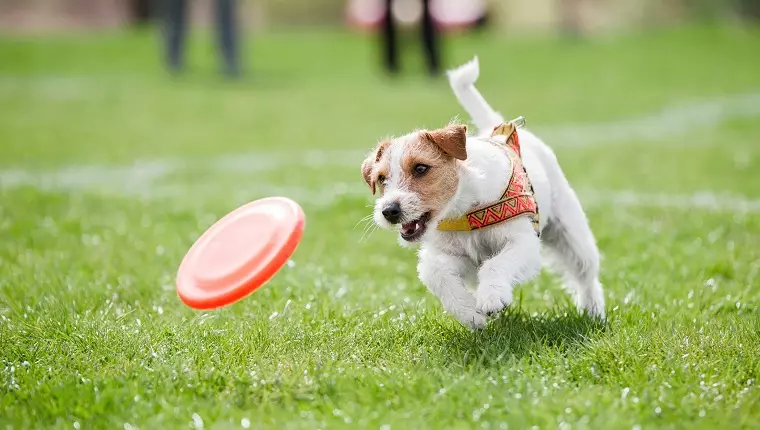Dogs are often associated with classic games like fetch or tug-of-war. However, not every dog is inclined to enjoy these traditional routines, leading into a more nuanced perspective on playtime. Factors such as age, temperament, and breed significantly influence how each dog prefers to interact and engage in play. Some may prefer a more relaxed stroll through the park, while others thrive on mentally stimulating activities. As dog owners, it is crucial to recognize these preferences and tailor playtime accordingly. This article discusses various play styles and offers innovative games that cater to the unique inclinations of different dogs.
Every dog has its own personality and energy level, impacting how they prefer to play. High-energy breeds, like Retrievers and Border Collies, often gravitate toward physical activities that challenge them both mentally and physically. On the other hand, more laid-back breeds or older dogs may shy away from vigorous games, preferring quieter and less exhausting activities. Recognizing and respecting these play styles not only fosters a positive relationship with your canine companion but also encourages both mental and physical well-being.
The first step in enhancing your dog’s playtime experience is to observe their behavior. Does your dog eagerly retrieve items, or do they prefer to lounge and enjoy a cozy cuddle? These simple observations can guide you towards discovering a play style that suits your dog best. With patience, you can identify activities that bring them joy and satisfy their instinctual needs.
For dogs with an athletic inclination, high-energy games are essential. These dogs—often described as “jock dogs”—love engaging activities that allow them to expend their abundant energy. Games like fetch and tug-of-war can be invigorating and rewarding, particularly if you involve items that take advantage of their natural chasing instincts, such as balls or frisbees.
Agility courses can also provide an ideal platform for these hampered athletes. Training sessions that incorporate jumps, tunnels, and weave poles not only entertain but also enhance your dog’s physical abilities. Regular trips to a well-fenced dog park where they can mingle and play with other dogs can serve as an outstanding outlet for energy, providing both socialization and exercise in a stimulating environment.
Not all dogs are fans of vigorous activity. The so-called “couch potato dogs” savor snug moments with their owners over heart-pounding play. While it can be challenging to ignite motivation in lazier dogs, ensuring they remain active is essential for their health. Gentle, extended walks can be an excellent way to keep them in shape without overwhelming them.
Additionally, interactive games can light a spark in these pooches. Simple exercises like indoor fetch on carpeted surfaces can sufficiently engage them while minimizing impact, or sprinkling their meals around the house could encourage them to “hunt,” stimulating their minds and bodies simultaneously. Consider introducing them to puzzle feeders that challenge them to work for their kibble, combining diet and play effectively.
Fun for the Digging Enthusiast
For dogs inclined to dig, encouraging this natural behavior can be both constructive and playful. You might consider designating a specific area in your yard as a digging zone, filled with sand or loose soil. This can not only prevent destructive digging habits around your home but also provide a designated space for your dog to channel their energy productively.
Other activities, such as hiding toys or treats for your dog to find, can also play into their digging instincts. Engaging toys that require them to dig or paw can stimulate their natural instincts while remaining entertaining.
Scavenger Hunts for the Scent Tracker
Certain breeds possess an innate proclivity for tracking scents, such as Beagles and Bloodhounds. These dogs excel in activities that engage their sense of smell. Simple exercises, such as hiding treats around the house and teaching them to locate them, can be very rewarding. Consider enrolling in scent work classes or nose work sessions, where they can hone their instincts while bonding with you in a fun environment.
Moreover, long walks in unfamiliar territories can introduce a plethora of new smells, providing mental stimulation that keeps their minds sharp and engaged. A classic game of hide and seek—where you hide and call them to find you—can also tap into their tracking instincts while integrating fun into everyday life.
Games for the Clever Canine
If you are blessed with a particularly intelligent dog, keeping their minds active is crucial. These dogs thrive on challenges and mental stimulation. Various games can be introduced to keep their intellect engaged and prevent boredom-induced mischief. Puzzle toys, advanced training tricks, and agility exercises can effectively channel their energy while boosting their cognitive capabilities.
Consider fostering their learning further by assigning names to specific toys and rewarding them for fetching the correct item. Engaging them in problem-solving scenarios can pave the way for a fulfilling and active mental landscape.
Final Thoughts: Crafting a Personalized Play Experience
The essence of pet parenting is understanding your dog’s unique personality and needs. Each pup has a distinctive play style, and recognizing these differences opens avenues to enhance their happiness and well-being. The right game can lead to a deeper bond, learning opportunities, and a combination of fun and exercise that enriches their lives.
Before trying any new activity—with any dog—ensure it aligns with their health and physical capabilities. Always prioritize their safety, regularly consult with your vet, and monitor your pet’s energy levels, providing ample time for rest and recovery. Through thoughtful and creative engagement, you can create a deeply rewarding play experience tailored specifically for your furry friend. What unique games will you explore with your dog?

